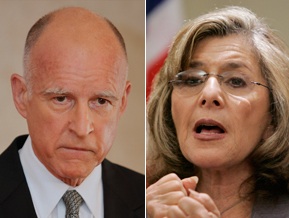Karen Sampson and her Colorado neighbors just won a serious victory for liberty.
In a unanimous decision on Tuesday, the 10th U.S. Circuit Court of Appeals struck down Colorado’s disclosure laws for grassroots political groups. This is a big deal. As the Associated Press put it, “The issue is ripe for an appeal to the U.S. Supreme Court.”
The federal appellate court held that Karen and her neighbors in the tiny subdivision of Parker North, Colo., should not have been forced to register with the government and comply with burdensome campaign finance laws simply for opposing a ballot issue involving the annexation of their neighborhood.
[youtube wFqaJKOP6P0]
I wrote previously at Big Government that Karen and her neighbors opposed an effort to annex their town into a neighboring city because it would raise their taxes without providing them benefits. So they printed up fliers and yard signs. And then they got sued.
Under what basis? Colorado’s campaign finance laws, which state that any group of individuals that spends over $200 magically becomes an “issue committee” that is forced to register with the state. Further, they had to track and report all their “contributions” and “expenditures” and disclose the identities of anyone who gave them money.
The result? People took down their yard signs and stopped passing out fliers.
[youtube XZXlPdF5xkE]
In 2008, a federal court upheld the lawsuit against Karen and her neighbors while admitting that Colorado’s campaign finance laws “had the effect of stifling political speech in violation of the First Amendment.” The Institute for Justice appealed and, on Tuesday, secured victory.
Federal Judge Harris L. Hartz wrote in Tuesday’s opinion:
The average citizen cannot be expected to master on his or her own the many campaign financial-disclosure requirements set forth in Colorado’s constitution, the Campaign Act, and the Secretary of State’s Rules Concerning Campaign and Political Finance.
 Increasing numbers of people are coming to realize that the burdens of campaign finance laws are enough to silence speakers. Consider a recent study by campaign finance expert Dr. Jeffrey Milyo, Campaign Finance Red Tape. He asked 255 people to comply with Colorado’s registration and disclosure laws. Guess how many managed to figure it out?
Increasing numbers of people are coming to realize that the burdens of campaign finance laws are enough to silence speakers. Consider a recent study by campaign finance expert Dr. Jeffrey Milyo, Campaign Finance Red Tape. He asked 255 people to comply with Colorado’s registration and disclosure laws. Guess how many managed to figure it out?
Not one.
The average score was just 41 percent. In real life, each person could have been subject to fines and penalties. After sifting through the mounds of confusing red tape, the participants felt that the campaign finance laws were “Worse than the IRS!” and had the effect of discouraging involvement in politics.
The bottom line is that the only thing Americans should need in order to speak out about politics is an opinion. The right to talk and participate in local politics is at the core of what the First Amendment was designed to protect. Campaign finance laws don’t just affect politicians–they restrict everybody’s speech, silencing the grassroots through red tape, regulations and punishment for speaking.
Thankfully, the judges in Karen’s lawsuit were engaged and took their job of protecting rights seriously. As IJ President Chip Mellor said:
This is yet another example of an important judicial trend the Institute for Justice has advocated since our founding–that of judicial engagement. Judges are becoming rightfully more engaged in defending vital rights and striking down laws that exceed constitutionally enshrined limits on legislative powers.
Bookmark IJ’s free speech blog, and join our conversation at facebook, twitter and You Tube.
COMMENTS
Please let us know if you're having issues with commenting.